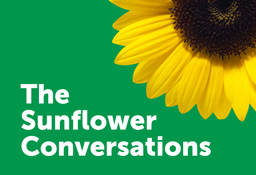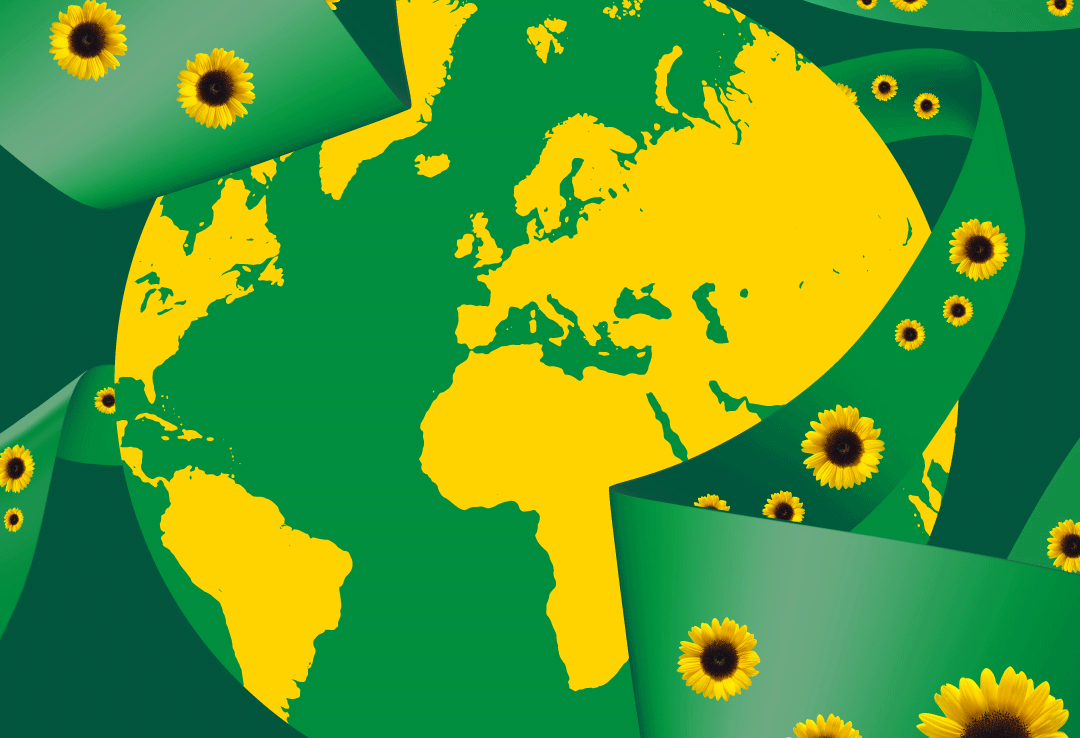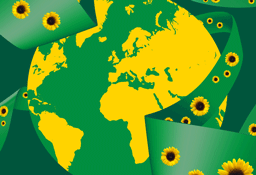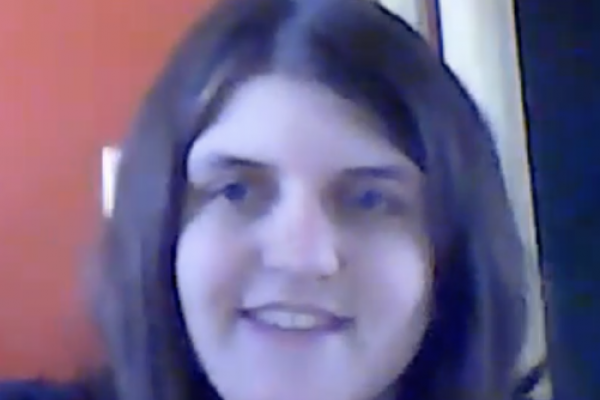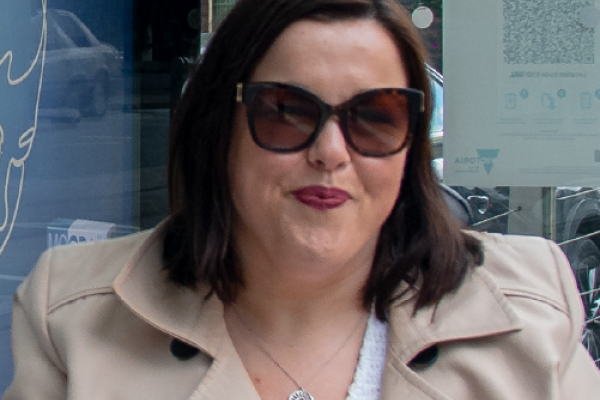If you are experiencing problems discussed in this podcast contact your GP or healthcare practitioner.
Bryony has cerebral palsy and right hemiplegia, which is a paralysis of the right side of the body. She also has learning disabilities, anxiety and non-epileptic seizures.
After receiving her diagnosis when she was academic year two Bryony was given splints to aid her walking along with physiotherapy and educational support which helped enormously.
Unfortunately she suffered bullying and isolation at school which has led to anxiety and PTSD.
In spite of the emotional trauma she is a strong young woman who has a passion for animals and performing arts.
Bryony’s adoptive parents provide her with love, stability and the support that she needs along with a support worker who accompanies her so that she can live an independent life.
Bryony explains how attitudes towards disability need to change - and for everyone to realise that disability isn’t t scary.
For support
Samaritans or call 116 123
Childline or call 0800 1111
CP Teens
Hosted by Paul Shriever and Chantal Boyle, Hidden Disabilities Sunflower.
Transcript
Paul Shriever:
Hey guys. I'm Paul. Today we're going to be talking to Bryony Moss. Also with us is Chantal. How you doing Chantal?
Chantal boyle:
I'm doing really well today, thanks Paul.
Paul Shriever:
Good to have you here.
Chantal boyle:
And you?
Paul Shriever:
Okay, so Bryony is from Buckinghamshire. Bryony has cerebral palsy and right hemiplegia, which is a paralysis of the right side of the body. She also has learning disabilities and mental health conditions. Welcome, Bryony. It's lovely to have you.
Bryony Moss:
Thanks for having me.
Paul Shriever:
It's a pleasure. Okay, so cerebral palsy is the name for a group of lifelong conditions that affects movement and coordination.
Bryony Moss:
Yeah.
Paul Shriever:
It's caused by a problem with the brain that develops before, during, or soon after birth. Can you just explain that to us a little bit, please?
Bryony Moss:
So, I'm adopted, so we are not actually sure when the cerebral palsy happened. Whether it was during birth, after birth. I found out that I had cerebral, well, my family found that I had cerebral palsy when I was about in year two. Because the teacher could see that I wasn't quite like the other kids with learning and PE, with coordination, and I wasn't kicking footballs and things like that. So yeah, that's when my mum started to take me to the hospital quite a bit. And then we found out that I had cerebral palsy.
Chantal boyle:
Had you had trouble forming friendships as well?
Bryony Moss:
It was kind a bit weird because before I was diagnosed, I did have more friends. And then when they found out that I was going to the hospital and I was like, "Yeah, I'm not very well," sort of thing, because I wasn't really sure what it was, friends sort of started to drift apart. And that's when bullying started really.
Paul Shriever:
Were you questioning things or were your parents questioning that there was something perhaps not quite right at that point? How did that manifest? How did that come about?
Bryony Moss:
Well, first of all, it was my teacher at the time, Miss Whitton, she called in my mum and said, "Oh, Bryony's having a bit of trouble keeping up in class. Her balance isn't very good. I think you need to take her to the doctors and explore this". I think my mum noticed it more after she had my sister, because my sister is able bodied and she could see the delays in development a lot. And then she was like, "Oh", because to her, she couldn't work out why I found doing puzzles hard, or why I couldn't really walk straight, or simple things like that.
Chantal boyle:
So, you've mentioned a few things there about your balance and not being able to keep up in class. Is the learning difficulties, is that directly linked to your cerebral palsy?
Bryony Moss:
I had a scan on my brain when I was younger. They did ones on my legs. My legs were okay. Then they did my brain, said, "Yep, she's got cerebral palsy". It's on my right side, but it's static, so I find things like balance hard, coordination, keeping in information, writing. Writing was very difficult for me at school. I had to have extra practice writing because my writing would go down and people couldn't actually read it. And looking back now at what my teachers saw in my school books, I don't know how they read that. So yeah. So it's a lot of practicing of new things again and again and again.
Paul Shriever:
Did it take long to diagnose?
Bryony Moss:
To me at the time it didn't seem that long, but to get support in education and stuff, it did take a while.
Paul Shriever:
But the actual diagnosis from a doctor, was that something that took a long-
Bryony Moss:
That took a bit off time because then I was, well I wasn't diagnosed, but from that I had walking difficulties. So then I was given splints and stuff as well. So to get a full diagnosis did take quite a bit of time because I had to see different doctors and...
Chantal boyle:
The things that you're able to do, have they improved?
Bryony Moss:
Having the splints and general physiotherapy and the conductive education has helped. My mum even thinks that I wouldn't be able to do half the stuff I do now if I hadn't done it. So even though it was a bit annoying and I didn't really want to be there after school, it has definitely helped.
Paul Shriever:
Yeah.
Bryony Moss:
But due to bullying at school, I then develop mental health problems. So now I'm kind of having them too, but yeah.
Paul Shriever:
How are things now, Bryony? Are you-
Bryony Moss:
They're much, much better. I mean, I feel that like, because you're not in school, you can hang out with people that like understand you more and you don't have to like try and fit in and be in a group. Because I found that very difficult. Because groups didn't really want to take me because they didn't want someone with a disability with them. So yeah.
Paul Shriever:
Yeah.
Bryony Moss:
That's been hard. But I now like go to a theatre group and I have lots of friends there and they've got disabilities, but then I've also got able bodied friends from school as well that I've managed to keep in contact with. So...
Paul Shriever:
Do you find that with your age and getting older, you've sort of worked out some sort of coping mechanisms? Have you managed to deal with it in a better way?
Bryony Moss:
I think I definitely use coping strategies because I find it really hard talking to new people. I find that really nerve wracking sometimes. But I think, through seeing doctors and other specialists, I've been able to use mindfulness and different types of tools to try and help me to stay calm because of my anxiety. So yeah, I think it's definitely not a hundred percent perfect, but it's getting there.
Paul Shriever:
Yeah.
Chantal boyle:
You are listening to The Sunflower Conversations with Paul and Chantal. To learn more about the topics covered in today's podcast, details are in the show notes.
Paul Shriever:
I couldn't help pick up on the fact that you mentioned that you were adopted. So you've clearly got some lovely parents that have taken you on.
Bryony Moss:
Yeah.
Paul Shriever:
Can you just touch on a little bit on what your parents mean to you?
Bryony Moss:
Oh God. My mum, she's literally been... well, she's like a rock to me.
Paul Shriever:
Oh.
Bryony Moss:
She'd hate me to say it because she's like "I'm your mum, not your friend", but she's like a friend to me as well.
Paul Shriever:
Lovely.
Bryony Moss:
My dad, because he was working a lot abroad when I was getting diagnosed and stuff, I did see him, I talked to him and stuff, but now he works from home. So our bond has definitely got like better, bigger, brighter, whatever. It was good in the beginning anyway. But I think one of the hardest things I found about being adopted is other people didn't understand what it meant. Because it was just another thing they could pick on, but they didn't understand. Sometimes I forget I'm adopted. Because both my parents are Caucasians. Because my dad was working in India, so they lived there when they got me. They're like, "Oh, why do you have like English parents?" And I'm like "What?" And then I remember, and I'm like, "Oh, I'm adopted. Yeah".
Paul Shriever:
So tell us about your interests. You sent me a video of you walking a little miniature pony and I thought that was lovely.
Bryony Moss:
So that's my miniature horse Lola. I did recently get her only like just before Christmas, I want to say October, November time. But horses have been a massive part in my life because I go riding with Riding for the Disabled. I ride at South Bucks since I was about the age of nine.
Paul Shriever:
Lovely.
Bryony Moss:
And that really helped me through my mental health and my bullying because it was a place where I could just be myself.
Paul Shriever:
Yeah.
Bryony Moss:
And didn't feel judged and it was like a safe place.
Paul Shriever:
Yeah.
Bryony Moss:
Also have goats. So I like looking after my goats as well.
Chantal boyle:
Do you live on a farm?
Bryony Moss:
No, but I'm kind of making a farm by accident.
Chantal boyle:
Oh you said that you're in a drama group or is it acting-
Bryony Moss:
Yeah.
Chantal boyle:
... group. So with your learning disabilities, how do you approach learning lines?
Bryony Moss:
The theatre company is called [inaudible 00:09:05] and it's an inclusive theatre company. There's quite a lot of us with disabilities. So they have mentors that will help us to learn our lines in different ways. So some of us have like have a bit of memory loss, so they'll come on stage with us and just prompt us. I try and learn, read the script, learn the story, and then know people's cues and like the beginning of my line, that helps me to remember the rest of it.
Erm what’s quite interesting is that we also use sign language as well so, so we might do a whole scene using sign language. And we use different ways of communicating and showing how different people communicate within what we do.
Chantal Boyle:
Have you learnt sign language yourself then?
Bryony Moss:
I’m trying too to learn some stuff, I’m not 100% but for the New Year I will learn some sign language.
Chantal Boyle:
I think that’s fantastic goal to set yourself.
Paul Shriever:
Um yeah that’s great.
Bryony Moss:
Yeah
Chantal Boyle:
You know, just that other layer of communication, it’s fantastic it’s really ready good. It’s so beneficial. I really like the idea that you are performing a play and that it’s in sign language.
Bryony Moss:
Yeah
Chantal Boyle:
Really inclusive.
Bryony Moss:
That’s what I love about it that it’s very inclusive.
Paul Shriever:
What's a typical day like for you?
Bryony Moss:
My mum's my carer. My dad helps my mum. But I also have a support worker who comes with me wherever I go. So she'll come to college for me. She'll come horse riding. She knows about my seizures. And like she can tell when I'm in them, what to do when I'm in them. Because sometimes I forget where I am and who I am and I sort of make up these stories in my head. So she's there to like keep me safe. But she's also there because, even though I can't be completely independent, like I can't drive, some of my friends can, like my sister can, she's helping me to be as independent as I can be.
Chantal boyle:
This is somebody who is with you five days a week, or?
Bryony Moss:
Six days a week.
Chantal boyle:
But that enables you to have independence from your home and from your parents?
Bryony Moss:
Yeah. And also it lets me do stuff that like I want to do rather than like fitting it around my mum. Because there's stuff that I like doing and she's like, "I don't really want to do that".
Paul Shriever:
How your family, how your parents and your sister, how have they adapted to you with your condition? Is it something that's had to change over a period of time? Or is it something that you've just, you don't really think about so much now?
Bryony Moss:
In the beginning when I had seizures and stuff, that was really hard. But like my mum says, it's just our normal. Someone always has to be with me, which can get a bit frustrating sometimes. But it's nice now that I've got like a support worker, because I can do things and they're not someone in my family who's like my mom or my dad.
Paul Shriever:
Yeah.
Bryony Moss:
So that has actually really helped my confidence.
Paul Shriever:
What's the reactions you get from people?
Bryony Moss:
They don't know where to put me so they make fun of me.
Chantal boyle:
What type of seizures do you have?
Bryony Moss:
I have non epileptic seizures, but they look like an epileptic seizure.
Chantal boyle:
So is it like tonic, chronic where you fall to the ground?
Bryony Moss:
Yeah. I can have those. Yeah. But they can last all different timeframes, so it can be quite tiring. The doctors don't actually know much about non epileptic seizures, but what they think is that it's driven from trauma, anxiety-
Paul Shriever:
Stress.
Bryony Moss:
... and I've been... have anxiety and PTSD. So...
Paul Shriever:
Would you say that your anxiety is triggered by your condition? Is this something that they go very much hand in hand? So by having cerebral palsy, that is something that has contributed to making you feel more anxious? Or is it the bullying? You know, what is it that's kind of triggered that anxiety?
Bryony Moss:
I think that anxiety... it's probably the disability, but it's from how others see it and the experiences I've had with the bullying.
Chantal boyle:
You really just wish you could take people and sort of transport them and say like "This behaviour, this cruel behaviour, has this impact". You know?
Bryony Moss:
Yeah.
Chantal boyle:
Like stop, think, rewind, be kind.
Bryony Moss:
The sad thing is though is that a lot of people that say mean things, it could still affect me today and they won't even remember that they said it.
Paul Shriever:
Yeah.
Chantal boyle:
Exactly.
Bryony Moss:
Because to them, it's just a little comment. But they don't understand how it can stick with sometimes.
Paul Shriever:
Can I ask you Bryony how you deal with anxiety?
Bryony Moss:
I've got better at talking to people about it and saying to people "I'm a bit anxious" or I do have panic attacks sometimes. So that's another way of me knowing that something's making me anxious. Another thing I like to do is just take my dog for a walk.
Paul Shriever:
What needs to change in your opinion, in terms of how your conditions are perceived and seen?
Bryony Moss:
Attitude towards the fact that disability isn't scary. Because I feel that a lot of people find when you say, "Oh, I have a disability", because there is the unknown, they're all a bit that, "Oh gosh. Oh gosh, what does that mean? What does this mean?" So I just think maybe we just need more representation of what it's truly like in the media. Because we might have a disability, but our disability doesn't define us. Like I wouldn't say, "Oh I'm Bryony. Hi, I'm Bryony, I'm disabled". That would come way later. I'd be like, "Oh hi, I'm Bryony. I like this, I like that. I go here. I enjoy this. Oh, and yeah, just let you know. I have a disability just so you"... yeah.
Chantal boyle:
You know, when I introduce myself, I don't say "Hi, I'm Chantal, I'm non disabled".
Paul Shriever:
Yeah.
Bryony Moss:
Yeah.
Chantal boyle:
And I think, you know, how you've articulate that is-
Paul Shriever:
That was lovely.
Chantal boyle:
... is perfect. And it is all about representation. Isn't it? If you don't see yourself represented, reflected in society, in sitcoms, in films, in adverts, on billboards, advertising, clothes, whatever it might be, then that we're not going to get unity, are we?
Paul Shriever:
You are listening to The Sunflower Conversations with Paul and Chantal. To learn more about the topics covered in today's podcast, details are in the show notes.
Chantal boyle:
How did you learn about the Sunflower? When did you first find out about it?
Bryony Moss:
I first found out about it, I'd say, at the beginning of the first lockdown. Because I couldn't wear a mask because of my seizures and people couldn't see if I was going into one, and my friend was wearing a Sunflower lanyard and I said, "Oh, what's that?" And she was like, "Oh, you know, like people with hidden disabilities, they can wear this. And it tells people". And then I thought, okay, I'm going to do some research. I've got myself one of these, saw all the amazing stuff you guys do, looked you up on Instagram, all that. And then I was like, "Wow". And then more people asked me about this, I then met more people that wore these, and it became like a community of us all together.
Paul Shriever:
Do you find it genuinely helpful to have one with you?
Bryony Moss:
Oh, I do. Because I get looks when I go into the disabled toilets afterwards and they're like, "That's a disabled toilet, you're not disabled". But when I wear this, people are a bit more like, "Oh, okay". So I think they're really important. I think through Covid I've learned that they are important, but I feel that even though we're still in the pandemic, but in the years to come these will become even more important.
Paul Shriever:
Do you feel you have a good support network in terms of people, family, friends around you that support you? And what does that mean to you?
Bryony Moss:
I feel I definitely do have a good support network. I mean, they're there for me when I'm feeling down. When I don't even know why I'm feeling down. It means a lot because my mom and dad worked really hard to try and get me a support worker. And by getting a support worker, I can now be more independent and without their help I feel I would be in a very, very, very different place.
Chantal boyle:
If you sort of said, "Okay, I was severely bullied all throughout school and now I am in a theatre company and I'm on stage and I'm performing to people". I mean, that is awesome.
Paul Shriever:
Yeah. If you have any advice, what is it for people like yourself, is perhaps getting bullied or has got unanswered questions? What would you suggest to them? What would you say to them?
Bryony Moss:
It sounds cringey when I say "You're not alone". Because you hear that a lot and you're like, "I've heard that. That's not helping". So I would say that you aren't alone. But if you are struggling, if you find it hard to speak to a friend or a family member, there are charities out there and organizations out there that you can ring that will help you. It won't show up on your phone bill. It's very discreet. So like Samaritans, Childline, things like that, they can actually be really helpful. And sometimes it's just nice to talk to someone on the phone, because you're not sitting there face to face, seeing that person, you are just hearing a voice and they listen.
Chantal boyle:
We like to direct people who've listened to the recordings to support. So you've mentioned Childline and the Samaritans. Were there any charities that helped you with the cerebral palsy?
Bryony Moss:
I found out about a charity called CP Teens which is all for disabled people with cerebral palsy, they can on meet up. It's like a help network.
Chantal boyle:
You are a very inspiring young woman and incredibly busy as well with all your looking after all your animals, your goats and your horse and your dog or pony rather, and your acting career and going to college. So you've really got a lot going on and we've really enjoyed this. So thank you very much. Paul and I wish you all the best for the future. And please keep in touch with us and let us know how everything is going.


